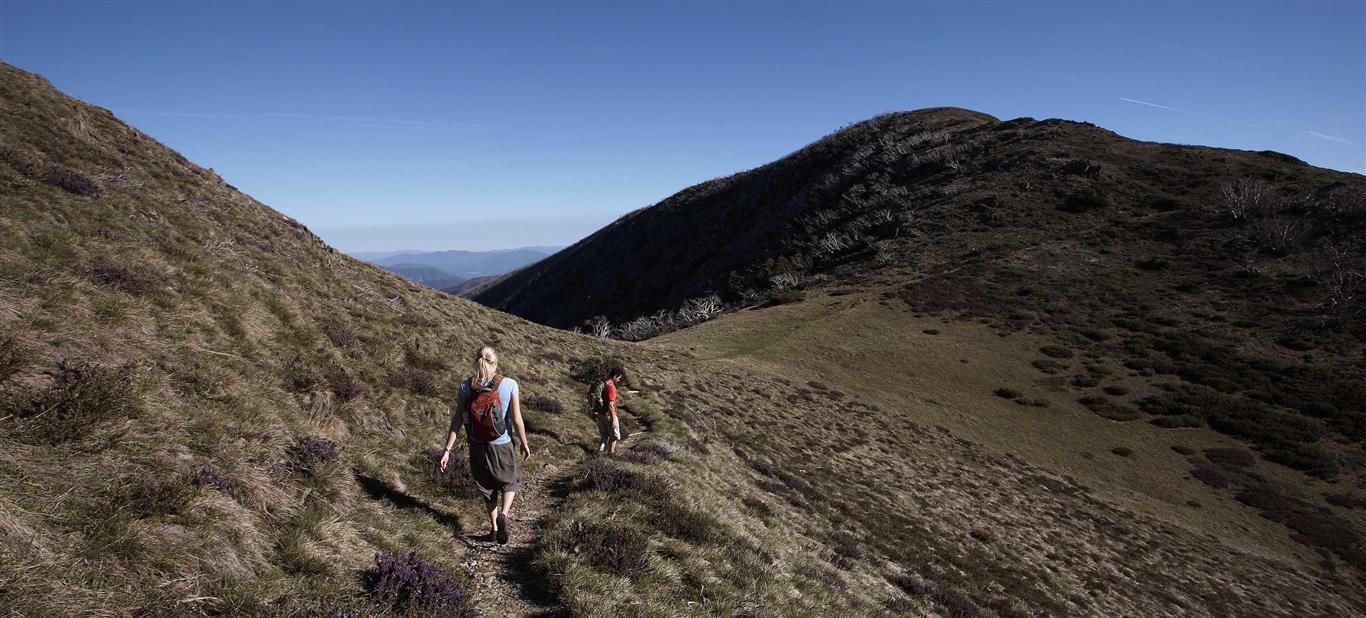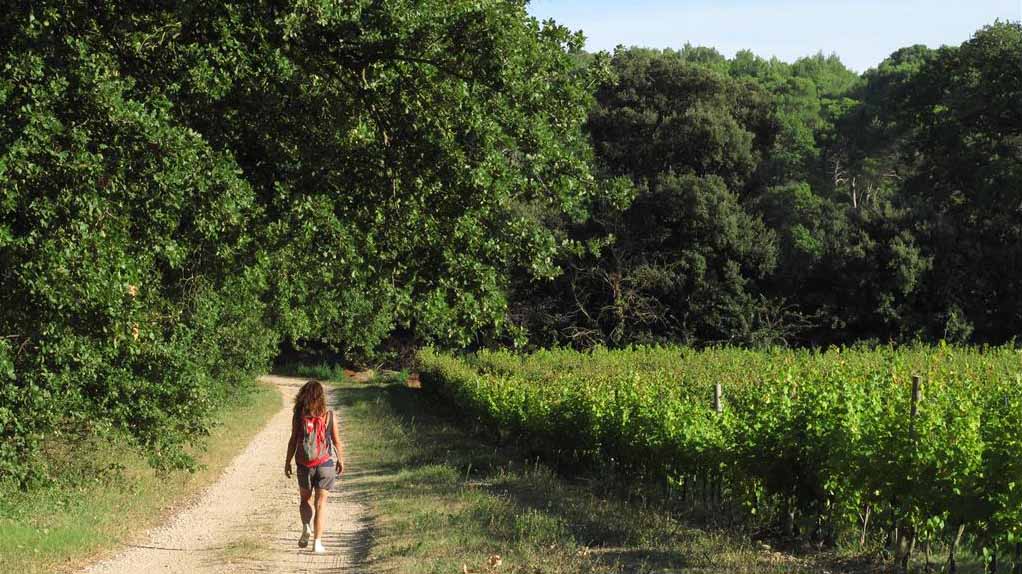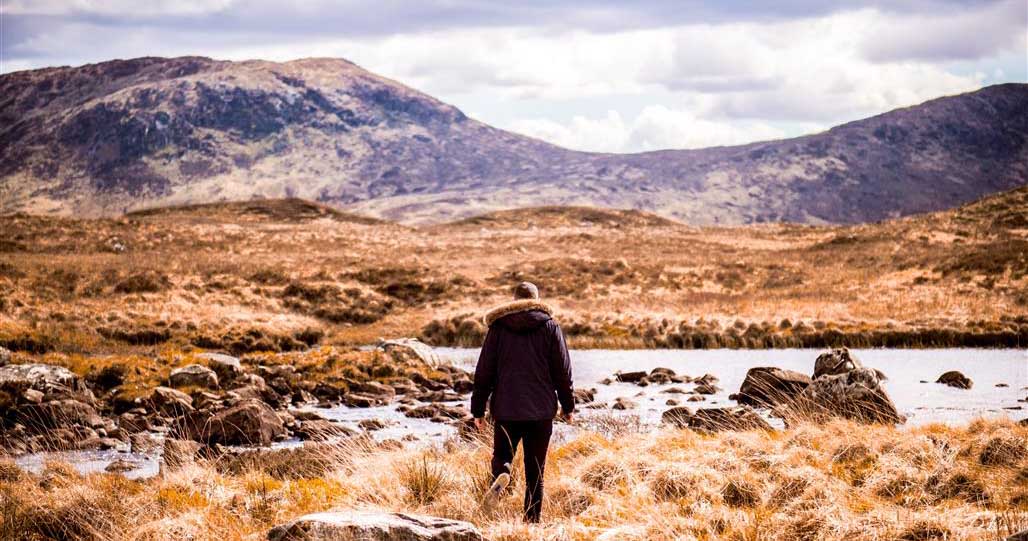
Slow Travel – lessons from a man with a whip
Slow travel is pretty self-explanatory. It’s about taking your time, and not rushing.
It’s about getting there at a leisurely pace, and exploring more thoroughly. And the reason for all this slowness, is to enable a better connection with the culture, the land, or wherever it is you’re slow travelling to, or perhaps – ‘through’ – would be a better way of saying it.
For anyone who likes to walk, or go for a hike, slow travel is hardly a revelation. We do it as often as we can. And while everybody has their own reasons to walk, we’re pretty sure connection to place, and maybe, self, is going to be a feature for most.
Nevertheless, the emergence of the phrase, and the movement around it, is a fairly recent phenomenon.
So where does slow travel come from?
If you want a quick answer do a google search, and you’ll find out pronto. I’m going to embrace the concept of ‘enjoying the journey’ here, and meander my way towards the answer, that you probably already know.
Let me first say, however – I think it was born of an idea, that came into being when an emerging empire clashed with a fallen one. A war of cultures, if you will. Wisdom vs youth. And I think it represents an ongoing battle between these two forces.
Now, let me explain. The origins of slow travel, you could argue, can be traced back to the year 433, when a fellow called Flavius Odoacer was born in what’s known today as Germany. Flavius was clever, perceptive, and growing up as a barbarian, he was also a formidable warrior.
Which is why he was able to invade and occupy Rome in 476, overthrow Emperor Romulus, declare himself King of Italy and herald in the fall of the Roman Empire.
Or, you could argue, slow travel began making its way towards our consciousness more recently, when another clever, perceptive, and some would say, also barbaric, fellow was born just outside of Chicago in 1902.
His name was Ray Kroc, and he’s known for aggressively squeezing Richard and Maurice McDonald out of their own business, and then turning it into the largest restaurant chain in the world.
Ray Kroc died in 1984, however two years later, on March 20th 1986, the Empire he built opened its first restaurant in Italy, in Rome, and the Italians were not pleased. To say the least.
With seating for 450 people, it was the largest McDonalds in the world, and the protests began immediately. Thousands of outraged citizens gathered in the piazza outside to voice their objections, passing round and devouring enormous iron skillets of perfectly cooked al dente spaghetti, to add substance, and sustenance to their demonstration, and, well, because it’s Italy
Valentino was headquartered next door, and began legal action claiming McDonald’s caused ”significant and constant noise and an unbearable smell of fried food fouling the air.”

Placards of Clint Eastwood were held aloft, as he’d managed to push McDonald’s out of the Californian seaside town of Carmel, and an organisation was even established to lead the attack on the golden arches. Despite their efforts, however, you can still buy a Big Mac at the bottom of the Spanish Steps, so you could safely say the ‘Agricola’ organisation was a failure. On the other hand it evolved, turned into the Slow Food Movement, and in 1989 the founding manifesto to preserve regional cuisine and traditional farming methods, was signed by delegates from fifteen different countries.
Today the organisation has representatives in 160 countries, and they even have a University, that my wife and I visited on our Honeymoon.
We were on a road trip, from Rome to Nice. Not going too fast. But not going too slow either. If we liked a place we’d stay for a few days, if not, one night and we’d move on.
We stopped into the University of Gastronomic Sciences, as we thought we’d be able to get a nice meal.
But there wasn’t much going on. So we left, found a lovely restaurant in the nearby village of Alba, ate a quick meal, and drank about three bottles of wine, slowly.
OK but really, what about slow travel?
Well the concept of slowness, over time of course, began to spread not just in breadth, but in-depth.
A quick search of Wikipedia (forgive me but speed is still pretty useful sometimes) reveals the existence of slowness in a huge number of disciplines now, including; slow ageing (is there any other way?) slow cinema, slow fashion, slow gardening, slow goods, living, marketing, cities, counsellors, media, medicine and money.
And it doesn’t stop there. Slow parenting, photography – not sloe gin I was disappointed to discover – but slow scholarship, slow church, slow technology and finally, eventually… slow travel.
So. Slow travel is an offshoot of the slow food movement, that arose in response to a McDonald’s opening in Rome in 1986.
I could have just told you that to begin with. However you might not have connected with the answer as much, and you wouldn’t have been able to enjoy the mental image of those pasta slurping protestors. It would have been information, without context or understanding.
Like flying into France, spending a day or two in Paris, Rome, Barcelona and Berlin, then flying home and saying you’ve ‘done Europe’.
You might have seen the sights, but it’s possible, you might learn more about France, for example, by spending a week in a little provincial town instead. Shopping at the markets every day in the local square. Getting to know the pâtissier by name. Going for long walks through fields of lavender and sunflowers, stopping at vineyards and sampling cheeses.
Playing pétanque on the odd afternoon with a couple of Gitanes smoking octogenarians, and hearing their stories of liberté, égalité and fraternité.

Slow travel is an idea
Slow travel is all of that, but it’s also an idea. Nobody owns it, and it’s propelled by anyone who’s inclined to do so. Like I’m doing right now. As I write. This. Article.
It’s an idea that was put into words in 2004, by a Scottish born journalist called Carl Honoré, and his ‘In Praise of Slow’ is considered one of the definitive texts of the movement.
Here’s what he says about slow.
“It is a cultural revolution against the notion that faster is always better. The Slow philosophy is not about doing everything at a snail’s pace. It’s about seeking to do everything at the right speed.
Savouring the hours and minutes rather than just counting them. Doing everything as well as possible, instead of as fast as possible. It’s about quality over quantity in everything from work to food to parenting.”
So what do you think? Agree? Disagree?
Is it a new idea? Or is it the eternal struggle between time, money and responsibility?
Surely we’d all like to do a bit of slow travelling. But, can we?
On the other hand, what’s really, truly, stopping us?
Do we have time for slow travel?
Years ago I was sitting in a bar in Blantyre, in Malawi, and an older, rather bedraggled looking gent sat next to me and ordered a beer. I glanced over, and in that quick moment before you look away (to avoid being rude) decided I had to talk to him.
He looked like he had a story, and, as I could see a curled up whip hanging from a thick leather belt round his waist, I was guessing it would be an interesting one.
Turns out he was from Liverpool, and he’d walked here all the way from England. On the other side of his belt hung a clutch of firecrackers, and in the two years it had taken him to get to Malawi, he told me, there was nothing he’d walked into that couldn’t be dealt with using either of these two weapons. I was in awe of this man. Who was no Indiana Jones either. Just an ordinary bloke, who a year after his wife had died – decided to take off.
Can you imagine what this guy would have learned about the world in his travels?
Well he’d learned to carry a whip and a set of firecrackers for starters. I’m pretty sure he didn’t set out from Liverpool with those hanging off his waist.
He didn’t actually say very much, this quiet walker, yet I can’t help but think, now – what would have happened if he and his wife had decided to set off years before. To walk the world together. Before she passed away.
Of course, you never know what another person’s real situation is. But you can’t stop from guessing, from imagining. With a little encouragement, could he have begun his long slow travel, sooner rather than later?

Another slow traveller I’m aware of, but didn’t meet, is a bloke called Patrick Pichette, who set off round the world with his wife in 2015, having quit his position as CFO of Google, no less.
Now you could argue, and you’d be right, that a man earning $5.2 million a year can do whatever he likes. But in reality, I’m sure when you’re caught up in that world, it’s incredibly hard to break away.
His memo to Google employees, when he quit, made the news as it was surprisingly frank, open and honest about the decision he’d come to. He’d been on holiday with his wife. They were near Mount Kilimanjaro, and she’d suggested they just keep going. Don’t go back to work. Let’s just keep walking she urged, and his response was, it wasn’t the right time.
“But then she asked the killer question: So when is it going to be time? Our time? My time? The questions just hung there in the cold morning African air.”
Their kids were grown up, I would imagine money wasn’t much of an issue, and after a while back at work, he realised he didn’t have a decent answer to her question. So he quit, and his memo finished with these words.
“In the end, life is wonderful, but nonetheless a series of trade-offs, especially between business/professional endeavours and family/community. And thankfully, I feel I’m at a point in my life where I no longer have to have to make such tough choices anymore. And for that, I am truly grateful. Carpe Diem.”
Good for him. He saw his chance, and he took it.
Start practicing, now.
For most of us however, the reality of slow travelling like that, is either a long time away, or, nigh on impossible. However, we can slow travel now. We can slow travel in just a couple of hours at the weekend, if we want.
And I’d encourage everyone, well, everyone who’s read this far at least – to start practising slow travel straight away. Take the train more often. Go for long walks. Try Forest Bathing. Whatever you need to do, to tap into the slow travel movement, just get on with it, now.
If you have a few hours
Visit familiar locations, and wander into unfamiliar places. Is there a park you drive by every day on your way to work? Go there, take a picnic, see what happens. Or spend some time in a forest, soaking up the atmosphere and enjoying the scent of the trees. It’s actually good for your health too.
If you have a long weekend
Wherever you are, you’re rarely too far away from an amazing two, or three day walk. Find it, take a Friday off work, and walk it. Have a look at your diary now, book it in and you’re sorted.
If you have a month
Oooohhh. Now it starts to get a bit more interesting. And we’re walkers, so of course we’re going to suggest you go for a long walk. But you could do virtually anything you like with a month up your sleeve. Just don’t try to do too much.
The Camino de Santiago is on my bucket list for sure, although, I don’t think the idea of ‘bucket lists’ sits very well with the concept of slow. But hey, I’d still love to walk the way of ancient pilgrims. Take my time wandering through the fields, mountains and stunning landscapes of Northern Spain. The odd vineyard perhaps too.
If you have a year
Look around the world. Make a plan, rearrange your life, take a year, and do it now. Why wait until you’re a grey nomad? You can do it again when you’re older. Make a list of all the reasons for you not to do it. And then go through them, coming up with practical solutions for every single one. Grab a pen, get started.
And if you do start slow travelling now. Little by little, hour by hour, the odd weekend here and there, nobody will be too surprised when you retire, and just take off. Walking the world, hopping in a campervan or sailing off into the horizon – whatever your choice of slow – they’ll wish you well, safe travels, and in truth, they’ll be a little bit jealous 🙂
To book a walk or hike package, book now online or call us on +44 808 304 8701.


There are no comments, be the first to comment.